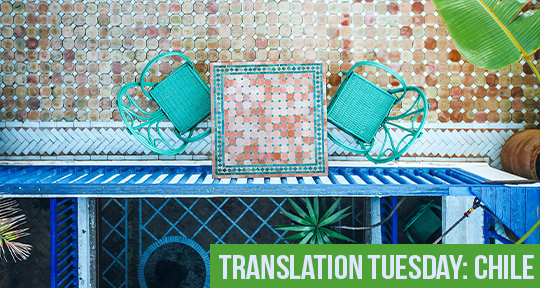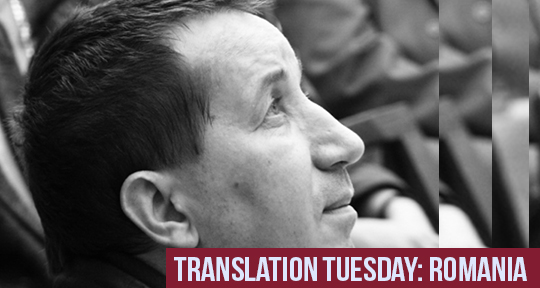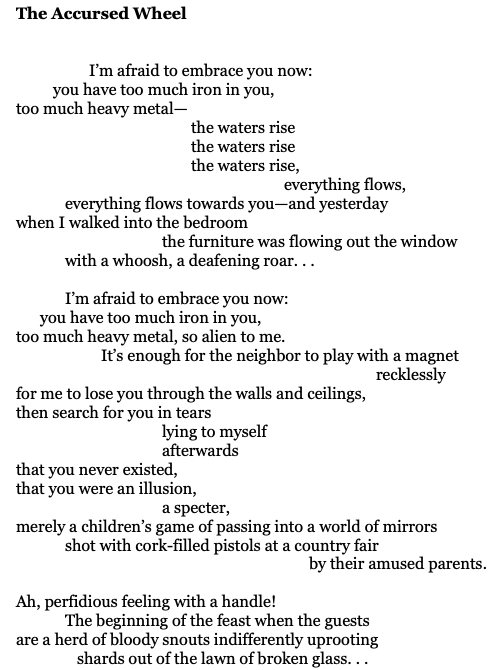For this week’s Translation Tuesday, we bring you two poems by the Chilean writer Víctor Hugo Ortega C. Rendered here in plain but powerful English by Georgina Fooks, the poems are striking in their restraint; the first is blunt, almost disinterested, and the second is so sparing in its references to emotion that what little appears—a look of surprise recalled on a lover’s face, a mocking word spoken long ago—is almost unbearable. The collection from which these poems are taken is in fact named for a line in the second poem: the Amantes de cartón, or Cardboard Lovers, of the final stanza—an image suggesting not only the futility of the lovers to understand each other, but of literature to capture the narrator’s loss.
The eye of Santiago
The eye of Santiago
gazes with polluted indifference
at the romance of lovers polluted
by high rates
of heartbreak.
Two thousand one hundred and ninety
I’ll see you and you won’t see me
I’ll speak to you and you won’t hear me
we’ll breathe in the same enclosed space
and maybe you won’t realise,
look where we happened to meet
you’re going to the 49th floor
me to the 45th,
50 seconds—is this how long this journey will last?
It’ll depend on if someone gets in,
although I don’t think so,
we always used to get lucky.



